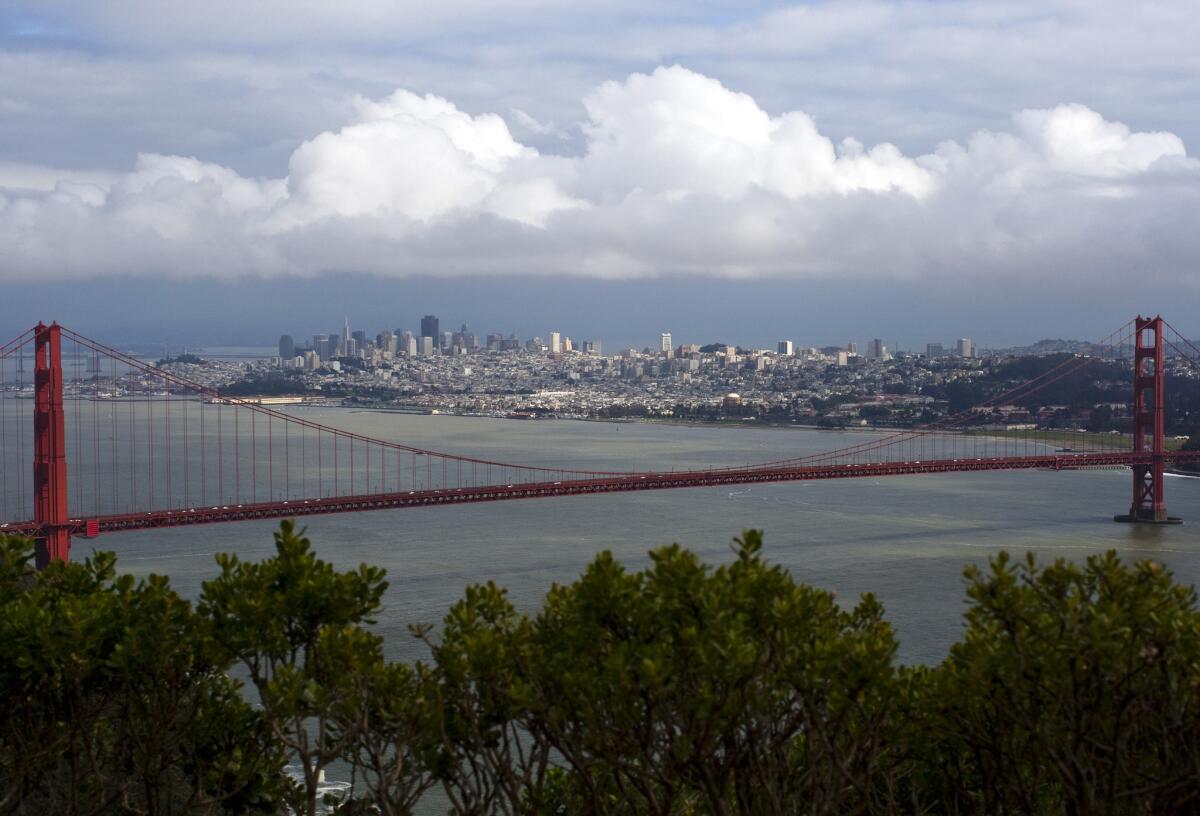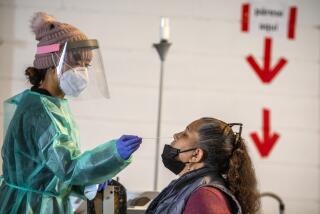San Francisco pauses reopening plans because of coronavirus surge

SAN FRANCISCO — San Francisco is experiencing a surge in rates of COVID-19 infection and will have to pause its reopening, the city’s health director said Friday.
Businesses that were scheduled to reopen Monday will now stay closed, said Dr. Grant Colfax, director of the San Francisco Department of Public Health.
They include hair salons, barbershops, tattoo parlors, zoos, outdoor bars and outdoor swimming pools. On June 14, 2.7 percent of the population tested positive for the virus but by Thursday that jumped to 5.1 percent , Colfax said in an online news conference.
“We went from a yellow to a high orange, and if that continues over the next couple of days, we could be in our red zone,” which could trigger more restrictions, Colfax said. He said hospital capacity remained “relatively good.”
The city’s hospitals have been accepting patients from Imperial County and San Quentin State Prison in Marin County. As of Thursday night, the city had 45 COVID-19 patients in its hospitals, and 27 of them were in intensive care, Colfax said.
He said the city’s Mission District, with a large Latino population, had been hit particularly hard by the disease.
Colfax said he was not sure what was driving the rise in the infection rate.
“We have been in this situation for a number of months, and people are tired,” he said. “It is hard to keep vigilant in this.”
Mayor London Breed, in a written statement, said San Francisco had 103 new cases Thursday. On June 15, when the city first reopened outdoor dining and in-store retail, it had 20 new cases.
”If that continues and we do not intervene, we will be at such a high number that our only option would be to shut down,” Breed said.
She said health officials will evaluate the data over the coming days before deciding whether the reopening can continue.
“I know people are anxious to reopen — I am too,” Breed said. “But we cannot jeopardize the progress we have made.”
“Our curve is not flat right now,” Colfax said. “In fact, that curve is getting more and more vertical.”
More to Read
Sign up for Essential California
The most important California stories and recommendations in your inbox every morning.
You may occasionally receive promotional content from the Los Angeles Times.











